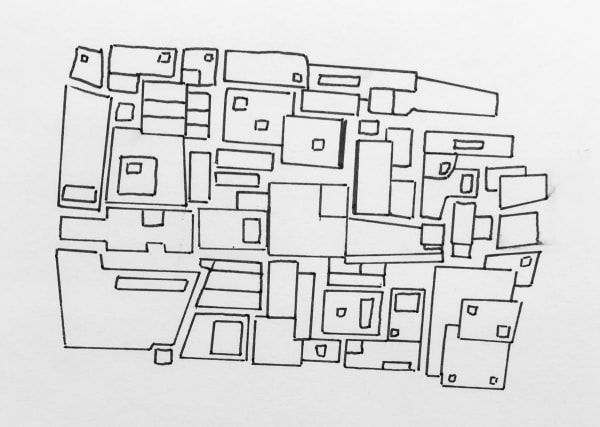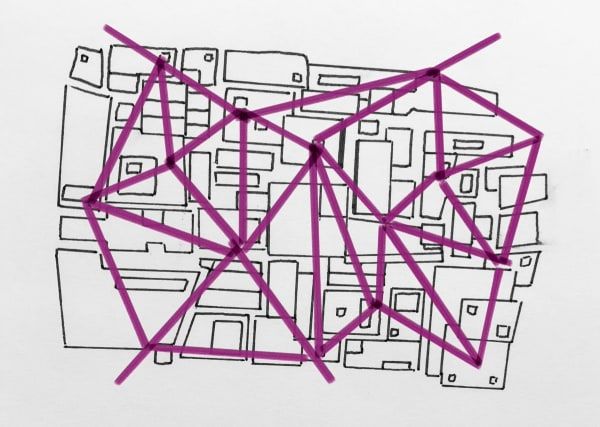Subconscious Alpha
|
I’m closing in on a functional MVP for Subconscious, targeting an alpha in Q1 2022.
Short term, the alpha will be a tiny, single-player iOS notes app for self-organizing ideas. You own your data, Subconscious just saves it to plaintext files. The simplest thing that could possibly work. If you like Notational Velocity, you might like this.
Long-term, I want to build toward a multiplayer tool for thought. Multiplayer social hypertext, built on open web3 protocols. Like Twitter meets Wiki. The internet of ideas.
So, a little app with big dreams. Give it a shot if you have moderate expectations and are willing to be open-minded and patient as we build the plane in-flight.
Sign up for Subconscious Alpha Waitlist
What I’m thinking about: networks
I recently ran a series of scenario planning exercises exploring the trajectory of forces driving the web3 phenomenon. This lead me to pull two good books off of my shelf: Scenario Planning (Lindgren, Bandhold, 2009), and Learning from the Future (Fahey, Randall, 1998). Both offer useful exercises for scenario development.
Coming away from this process, I was newly surprised by the uneasy collision of two systems: states and networks.


December 1st 2018
1 Retweet13 LikesInternet money. What does it mean to make money legible to software? What does it look like when markets and Turing-completeness intersect? How might markets be programmed? What would a market look like without humans in the loop? Smart contracts all the way down?
Smooth money, striated citizenship. What does it mean when money and information can pass through borders, but people can’t? Stateless money, stateless people. Two very different meanings. Algorithmic trading and algorithmic surveillance. Exchange and control.
How will these forces intersect with other borderless forces? Climate, migration, arbitrage, The Klept, work-from-home, 3D printing, drones, AR, VR, pandemic…
Network society. Others were asking these questions 20 years ago. Mark C. Taylor’s "Moment of Complexity" opens this way:
While moments of radical transformation can never be defined with precision, the collapse of the Berlin Wall on November 9, 1989, signaled a decisive shift from an industrial to an information society. With the ostensible triumph of multinational, informational, or digital capitalism, walls, which once seemed secure, become permeable screens that allow diverse flows to become global. What is emerging from the flux of these flows is a new network culture. […]
This trajectory suggests that the moment of complexity can be understood in terms of the shift from a world structured by grids to a world organized like networks. […]
What, then, is a grid, and what is a network? This question, which generates many more questions, is deceptively simple. We might begin to appreciate its complexity by conducting what Kierkegaard once described as a "thought experiment."
Imagine a grid.
What is its structure?
What is its function?
Are all grids the same or are they different?
If they are the same, why?
If they are different, how?
Do grids change or remain the same over time?
What is the relation of parts to whole and whole to parts in grids?
When did grids first emerge?
Where did grids first emerge?
Who invented the grid?
Where can grids be observed today?
What is a grid today?
What is not a grid today?
What is the function of grids today?
What is the architecture of grids today?
Are grids simple or complex?Imagine a network.
What is its structure?
What is its function?
Are all networks the same or are they different?
If they are the same, why?
If they are different, how?
Do networks change or remain the same over time?
What is the relation of parts to whole and whole to parts in networks?
When did networks first emerge?
Where did networks first emerge?
Who invented the network?
Where can networks be observed today?
What is a network today?
What is not a network today?
What is the function of networks today?
What is the architecture of networks today?
Are networks simple or complex?
What is the relationship between grids and networks?
How do you build things together as a network society? How do you learn together as a network society? Does a network society need tools for networked thought?
Subscribe to Subconscious
By Gordon Brander · Launched a year ago
The web began as a tool for thought


